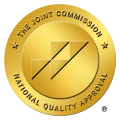Family Therapy for Addiction Treatment
An explanation of how various types of family therapy models can help treat substance use disorders.
Article Contents
What is Family Therapy?
Did you know that our family dynamics may be the key to understanding ourselves and our relationships with others? Family therapy is a type of therapy that aims to improve communication and family dynamics to lead to healthier, harmonious family relationships.
In this therapy, the whole family receives treatment rather than a single person. There are several types of family therapy. Some require all members to be present during the therapy session, while other types have therapists work one-on-one with each family member before bringing all members together.
Structural Family Therapy
Structural therapy is the most common form of family therapy.1 Structural family therapy theory describes the family as a unit, with each member playing a specific role in the family. Conflict arises when family members act in ways outside of their usual roles.
Families seeking this type of therapy will receive help in understanding why there is an upset in familial roles and what can be done to regain a sense of balance. The goal is to restore an equal balance of power between family members, improve communication, and move forward as a functional family unit.2
Some structural family therapy techniques include:
- Understanding and analyzing the family structure to see how members interact with each other.
- Teaching and reinforcing boundaries.
- Encouraging increased communication between conflicting family members.
Additional Therapy Models
Solution-Focused Family Therapy
This therapy focuses on the positive parts of patients’ lives and spends less time looking into how past negative experiences lead people to their current dilemmas.
Solution-focused family therapy differs from other family therapy models because it is goal-oriented and focused on the future. This method can be helpful for families because it focuses on what is currently working in the family. Family members are motivated to create positive solutions based on their current situations.3
Strategic Family Therapy
Strategic family therapy uses pragmatic thinking to understand problems in families and motivate members to change their behaviors.
Therapists who practice strategic family therapy will deliberately interrupt families amid conflict to stop the “feedback loop” that causes members to argue without reaching a solution. The therapist’s active intervention combined with a focus on the family’s intentional goal setting will eventually lead to solving the problems the family is facing.
Other Forms of Family Therapy
In addition to structural, solution-focused, and strategic therapy, some other common models of family therapy include:
- Narrative therapy, which focuses heavily on everyone in the family, their personal story, and how it relates to the family struggles.
- Transgenerational therapy, which works through conflict arising out of generational differences in attitude and behavior.
- Milan therapy, which focuses on guiding families towards healthier communication through active listening and responding.
Structural Family Therapy for Substance Use Disorder

Any family can benefit from the techniques and therapy used in structural family therapy. Family counseling of all kinds can be especially beneficial for families who have experienced trauma, single-parent families, and blended families. Structural family therapy can also be useful for families or family members with substance use disorder (SUD) or other disorders that can cause dysfunction in the family.
Often, family members with substance use disorder are heavily affected by the substance abuse and its repercussions. Instead of treating the individual, family therapy provides a holistic treatment for the affected individual and the family members involved in the individual’s life.
Some therapies used for family therapy in addiction treatment include:
- Brief Strategic Family Therapy
- Family Behavior Therapy
- Functional Family Therapy
- Multidimensional Family Therapy
- Multisystemic Therapy
- Structural Family Therapy
Why Structural Family Therapy is a Good Option
Structural family therapy has been proven to help families cope with the negative behaviors and relationships that stem from substance use disorder.4 Structural family therapy activities and techniques strengthen the bonds between family members and allow better communication of family dynamics.
Some structural family therapy activities include examination of boundaries in the family, reflection over “alliances” and enabling family members’ substance abuse, and examining family power hierarchies that have shifted due to substance abuse. These activities can take the form of journaling, talk therapy, or a combination of therapeutic techniques.
Factors That Complicate Structural Family Therapy
Something to keep in mind when considering family therapy is the cost. While insurance plans often cover most or all of the therapy costs, associated expenses that come along with therapy. Studies have shown that family therapy, while more expensive per session, does not increase total yearly healthcare costs.5
Structural family therapy is not one-size-fits-all, and many therapists who practice these therapy techniques can tailor their treatment to different types of families. However, treatment may be complicated by cultural differences or families that function in ways that are outside the “normal” realm of dynamics.
Families facing multiple issues at once may need more in-depth treatment alongside structural family therapy. While family counseling can help treat addiction, it is important to understand the biological aspects of addiction that make treatment less effective.
Socioeconomic constraints can also prevent some families from seeking guidance through therapy. Families without access to healthcare may find the prices of therapy to be out of their budgets.
Other Treatment Methods for Substance Use Disorders
Structural family therapy is not the only way to address substance use disorders.
- Cognitive-behavioral therapy (CBT)helps people identify and correct problematic patterns and behaviors and teaches coping mechanisms. CBT for substance abuse disorders is especially effective in combination with other types of therapy.6
- Dialectical behavioral therapy (DBT) is a common practice that helps patients build confidence and coping abilities to handle the stressful situations that often come with SUD. This therapy focuses on mindfulness, distress tolerance, and emotional regulation.
- Motivational interviewing (MI) is a therapeutic technique that strengthens an individual’s commitment to their goals. Many people with SUD struggle to find the motivation to recover. MI focuses on empowering the patient to set and achieve their own goals around sobriety.
Those struggling with substance use disorders always have the option of inpatient and outpatient treatment in addition to the different types of therapies. Group therapy sessions can also offer peer support and accountability that may encourage those with substance use disorders to continue receiving help in recovery.
Resources
https://www.regain.us/advice/family/family-therapy-theories-modalities-and-efficacy/
https://www.regain.us/advice/family/family-therapy-theories-modalities-and-efficacy/
https://www.goodtherapy.org/learn-about-therapy/types/solution-focused-therapy
https://medicopublication.com/index.php/ijphrd/article/download/7468/6948/13714




